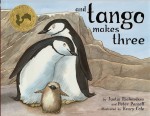-
Advocacy Theme
-
Tags
- Abortion
- Adoption
- Caregiving
- CEDAW
- Disability
- Domestic Violence
- Domestic Workers
- Harassment
- Healthcare
- Housing
- International/Regional Work
- Maintenance
- Media
- Migrant Spouses
- Migrant Workers
- Muslim Law
- National budget
- Parental Leave
- Parenthood
- Polygamy
- Population
- Race and religion
- Sexual Violence
- Sexuality Education
- Single Parents
- Social Support
- Sterilisation
- Women's Charter
End censorship before providing ‘resources’
July 14th, 2015 | Children and Young People, Letters and op-eds, LGBTQ, News, Views
By Jolene Tan, AWARE Programmes and Communications Senior Manager
The recent Commentary piece “Why we need more light, less heat on sexuality issues” (29 Jun) rightly calls for a broader conversation and more information relating to LGBT people.
Ms Nadzirah correctly notes that current public opinion may not be based on the fullest available information. Yet it is peculiar to ask the government to provide more resources, without acknowledging how state restrictions have barred access to existing resources.
Many materials exist that could, as Ms Nadzirah exhorts, push public conversation beyond the framework of “religion versus rights”. However, is this development likely to occur, given the continuing existence of state censorship?
For example, MDA recently banned a music video from singer Jolin Tsai. It depicts the difficulty a woman had in securing emergency surgery for her female long-term partner, because she was not recognised as a family member who could legally consent to the procedure. The video was based on a true story.
More awareness of such real-life experiences would help to flesh out the sociological inquiry of what it means to be “family”. It would also add further ethical and public health dimensions to the discussion on recognition of same-sex relationships.
Likewise, access to information was curtailed, not promoted, when the National Library Board (NLB) removed – and in some cases destroyed – books featuring same-sex relationships.
These books empowered members of the public to educate their children, or even themselves, about LGBT people and their relationships. They would have been especially beneficial to those who could not afford to buy their own books.
There is no shortage of banned material which could provide opportunities for greater understanding and discussion, by representing LGBT people, their experiences and their relationships in the everyday contexts in which they currently exist. Both factual and fictional accounts, where they are informed by actual experiences, are useful for this purpose.
Some examples of banned material of this nature are the song “Rainbow” by Taiwanese singer A-Mei and an Archie comic which depicted a same-sex marriage.
The restrictions on access to diverse information and perspectives go beyond individual cases of censorship of specific materials.
Importantly, LGBT groups such as Sayoni and People Like Us have been unable to register as societies. Consequently, they face additional barriers when engaging in public outreach and education. This muffles important sources of information about what it is actually like to be an LGBT person in Singapore.
There may well be a role for the government in providing resources on LGBT people. The Health Promotion Board’s online FAQs on sexuality are a good example of state information helping to disseminate factual content and dispel myths.
However, to leap straight to the state as a major information provider, without first eliminating censorship of LGBT people’s voices and experiences, puts the cart before the horse. Many resources already exist – but we need to stop blocking people from accessing these.
This letter was written as a reply to this commentary on TODAY.




